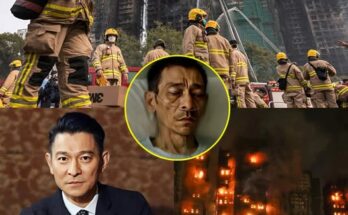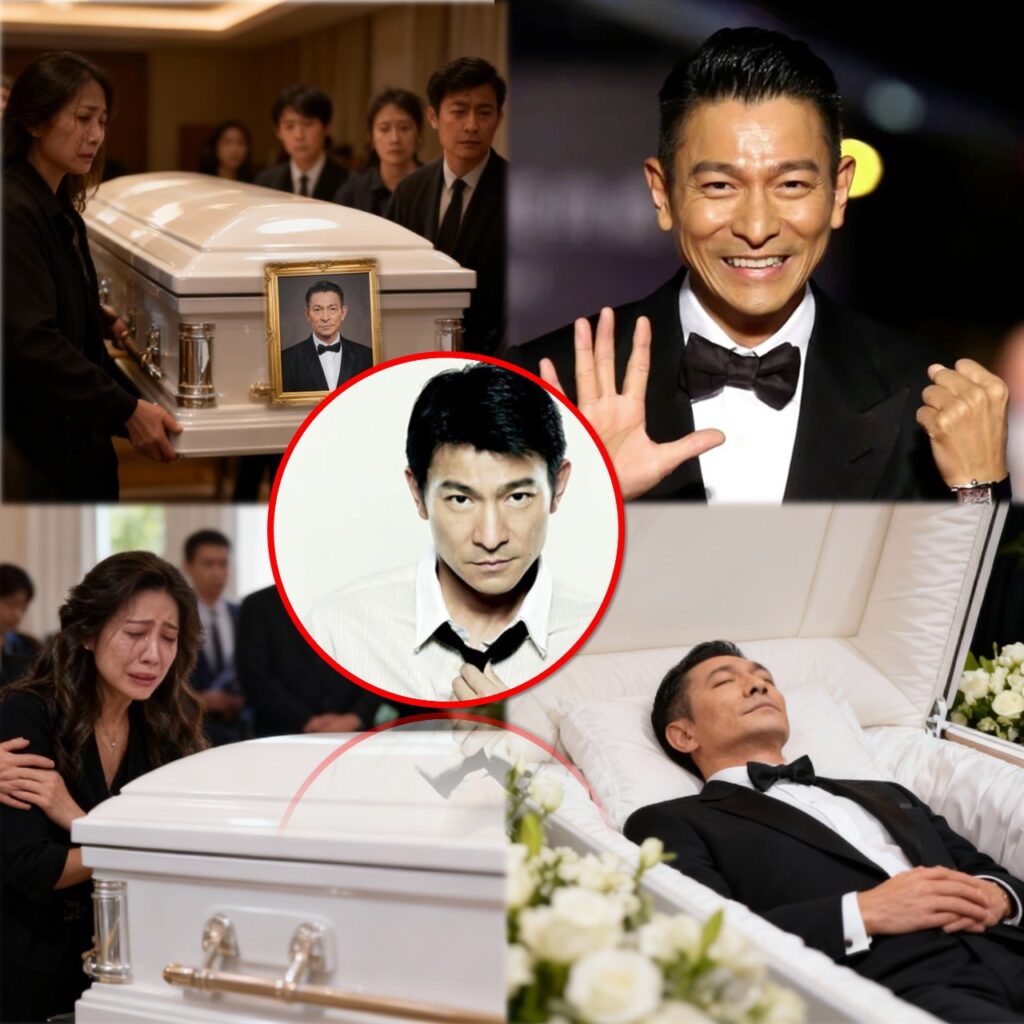
The Fragile Brilliance of a Star
Hollywood, like Hong Kong’s own mirrored skyline, thrives on illusion — light, reflection, and the art of hiding cracks behind glass. For decades, Andy Lau Tak-wah embodied that perfection. The “Heavenly King” who never faltered, who carried the weight of Asian cinema’s golden era with unyielding grace. He was the man whose smile could still a crowd, whose discipline became legend, whose humility defined an age when fame so often devoured its own.
But beneath that poise and precision, a quieter story was taking shape — one that the cameras never caught, and one that those closest to him now say was marked by years of quiet endurance.
“He was always the strong one,” said a longtime friend and fellow actor, his voice trembling slightly. “But strength can sometimes be a mask.”
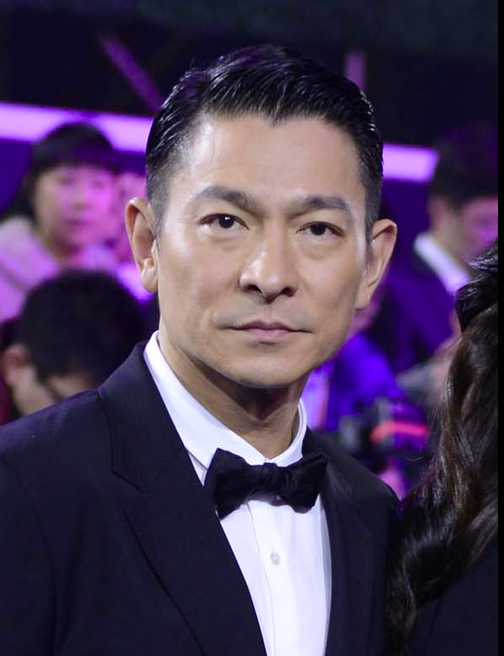
Section I — The Illusion of Strength
There was never a day Andy Lau didn’t show up. On red carpets, he stood immaculate — tuxedo pressed, posture proud, every gesture perfectly measured. He greeted reporters with warmth, posed for fans long after others had left, and smiled with that disarming sincerity that made him the people’s idol.
Behind the lights, however, colleagues began to notice the small signs — the way he sometimes leaned slightly when walking, the careful control in his movements after an old on-set injury, the rare moments when he would retreat to his car between takes, eyes closed, breathing deeply before emerging again with practiced calm.
“He carried himself like a man untouched by time,” said a veteran journalist from Hong Kong’s Sing Tao Daily. “But you could sense there was something beneath that perfection — a kind of fatigue that went beyond the body.”
Lau, known for his stoic work ethic, continued performing even when his body and heart were begging for rest. The illusion of invincibility became part of his legend — and, perhaps, his burden.
Section II — The Private Battle
In recent months, close friends have quietly spoken about a personal struggle Lau has faced for years — one that he chose to bear privately, away from headlines and sympathy. It was not the kind of battle that can be photographed or measured by physical wounds.
“He’s been dealing with pain — not just physical, but emotional,” one industry insider revealed. “He gave so much of himself to his work, his fans, his legacy. Sometimes, there wasn’t anything left for him.”
Sources describe long nights of solitude, a home filled with silence, and a man who, despite global fame, wrestled with isolation. Fame, they say, became both his gift and his cage — a mirror reflecting back only what the world wanted to see.
A close family friend, speaking on condition of anonymity, put it more softly:
“Andy always said, ‘As long as the audience smiles, I’ll keep smiling too.’ But no one can keep smiling forever.”
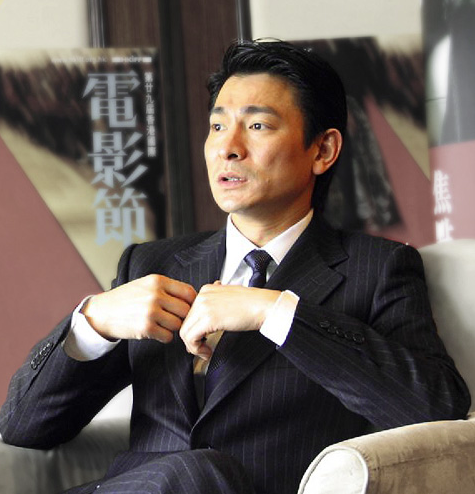
Section III — The Breaking Point
The revelation came quietly — not through scandal, but through honesty. During a recent private gathering in Hong Kong, Lau reportedly spoke candidly to a small circle of friends about “stepping back,” admitting the years of emotional strain that he had hidden from the world.
A canceled project soon followed, his management citing “personal reasons.” Then came a rare, vulnerable interview where he spoke, almost in passing, about learning to “accept fragility as part of being human.”
Those who know him best say it was the first time he allowed the world to glimpse the man behind the myth.
“He’s learning that strength isn’t just about endurance,” said a longtime collaborator. “It’s also about allowing yourself to rest.”
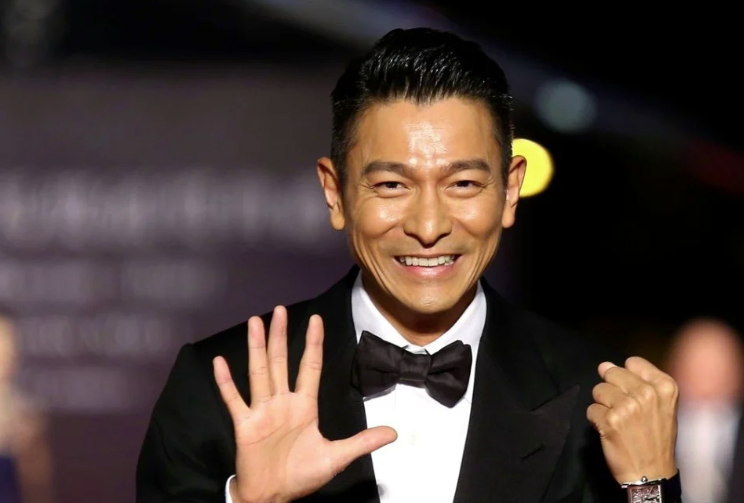
Section IV — Hollywood’s Reaction
The entertainment world — from Hong Kong to Los Angeles — responded not with gossip, but with reverence. Fellow actors, directors, and even mental health advocates praised Lau’s quiet courage.
“Andy Lau taught us that being perfect isn’t human,” said a producer at a recent film festival. “But being honest about your limits — that’s real strength.”
Film critics and historians have reflected on Lau’s place in cinema — not only as a performer, but as a symbol of the East’s enduring grace under pressure. Hollywood insiders have called his revelation “a wake-up call” for an industry built on the illusion of tireless excellence.
“This is bigger than one man,” said Dr. Evelyn Chong, a cultural psychologist. “It’s about what we demand of those who entertain us — and what it costs them to never falter.”
Section V — Reflection: The Quiet Truth Behind the Curtain
Fame, at its heart, is a kind of performance — a promise to the world that one will always shine, no matter the darkness behind the scenes. For Andy Lau, that promise defined a lifetime. Yet perhaps, as his truth now surfaces, it becomes clear that his greatest act was not the illusion of strength — but the courage to reveal his humanity.
In the end, his story is not one of downfall, but of return — to self, to silence, to peace.
Because even legends are allowed to rest. And in the stillness after the applause fades, Andy Lau Tak-wah remains what he has always been — not just a star, but a man of rare grace, reminding us that even in fragility, there is beauty.
“The world loved him for his strength,” a fan wrote on social media. “But I think now, we love him even more for his honesty.”
And perhaps that, finally, is the truest kind of immortality.


